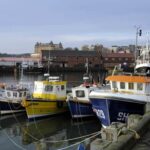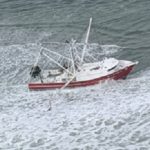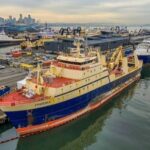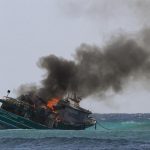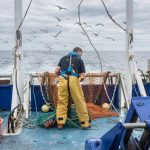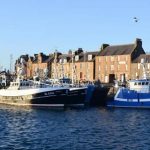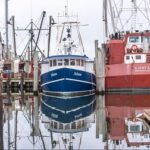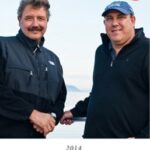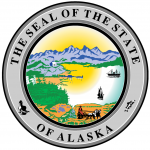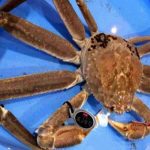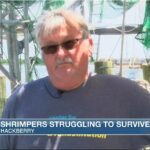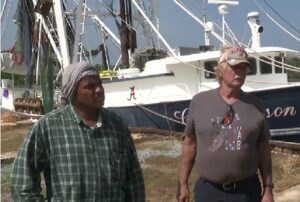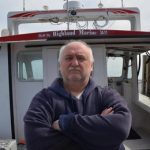Monthly Archives: January 2017
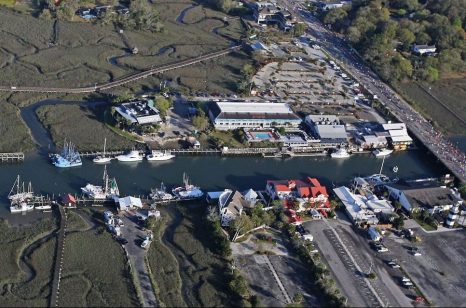
The struggle to preserve Charleston’s ‘working waterfront’
In McClellanville, longtime commercial fishing businessman Rutledge Leland is mulling retirement from Carolina Seafoods and talking to the town’s cadre of shrimpers and other fishing professionals about forming a co-op along Jeremy Creek. In Mount Pleasant, town officials stepped in to moderate an intensifying feud among residents, recreational boaters, commercial fishing interests and others over just what to do about Shem Creek. The town formed an ad hoc committee from among them. At issue is whether the working waterfront can be saved. As those two towns suggest, the answer might just vary from spot to spot. Read the story here 07:59
Has the Trump administration already made fluke fishing great again?
 On Friday, January 20, just hours after the official transition of presidential power, the White House ordered an immediate freeze of pending regulations until they can be reviewed by the new Trump administration. In an inauguration day memo to federal departments and agencies, new White House Chief of Staff Reince Priebus said the freeze was designed to ensure that President Donald Trump’s appointees or designees “have the opportunity to review any new or pending regulations.” Sent to the current heads of all executive departments and federal agencies, the memo from Priebus applies to any regulations not yet sent for final publication in the Federal Register and asks federal agencies to not send any regulation to the Federal Register until reviewed by the Trump administration. President Trump has tabbed New York businessman Wilbur Ross as the next Secretary of Commerce, the cabinet head with ultimate authority over NOAA Fisheries. Read the article here 20:36
On Friday, January 20, just hours after the official transition of presidential power, the White House ordered an immediate freeze of pending regulations until they can be reviewed by the new Trump administration. In an inauguration day memo to federal departments and agencies, new White House Chief of Staff Reince Priebus said the freeze was designed to ensure that President Donald Trump’s appointees or designees “have the opportunity to review any new or pending regulations.” Sent to the current heads of all executive departments and federal agencies, the memo from Priebus applies to any regulations not yet sent for final publication in the Federal Register and asks federal agencies to not send any regulation to the Federal Register until reviewed by the Trump administration. President Trump has tabbed New York businessman Wilbur Ross as the next Secretary of Commerce, the cabinet head with ultimate authority over NOAA Fisheries. Read the article here 20:36
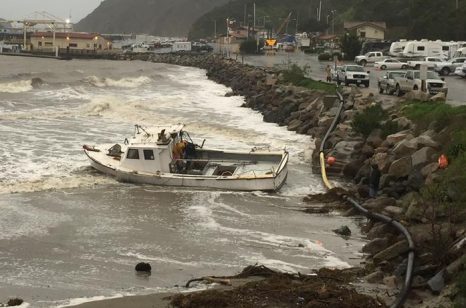
Crab Boat washes up onto beach at Port San Luis
A boat broke free of its mooring and washed up onto a beach at Port San Luis on Sunday morning. The co-owner of the boat launch facility tells KSBY the 35-foot crab boat crashed into the rocks before coming to rest on the beach. It reportedly belongs to Port San Luis Harbor Commissioner Bill Barrow who is also a commercial fisherman. About a dozen fishermen volunteered their time to help remove critical pieces of equipment off the boat. Read the full story here 17:44

2017 IPHC Annual Meeting Monday, January 23 through Friday, January 27, 2017 in Victoria, British Columbia
The Ninety-third Annual Meeting of the International Pacific Halibut Commission will be held from Monday, January 23 through Friday, January 27, 2017 in Victoria, British Columbia at the Delta Hotels Victoria Ocean Pointe Resort. Further details on the 2017 IPHC Annual Meeting
Robert Morrissey cautions P.E.I. fishermen about future of lobster stock
 The lengthy discussions on lobster carapace that kept the Prince County Fishermen’s Association’s annual meeting running for nearly five hours last week were largely missing from the Western Gulf Fishermen’s Association agenda last Monday. It’s not that carapace wasn’t on the fishermen’s minds. It’s just that president Francis Morrissey advised members they will organize a special meeting to discuss carapace rather than take up time at the annual meeting. They did hear from Egmont MP Robert Morrissey,,, Read the story here 14:07
The lengthy discussions on lobster carapace that kept the Prince County Fishermen’s Association’s annual meeting running for nearly five hours last week were largely missing from the Western Gulf Fishermen’s Association agenda last Monday. It’s not that carapace wasn’t on the fishermen’s minds. It’s just that president Francis Morrissey advised members they will organize a special meeting to discuss carapace rather than take up time at the annual meeting. They did hear from Egmont MP Robert Morrissey,,, Read the story here 14:07
Today’s Dungeness crab fisherman must be smart, rational to survive
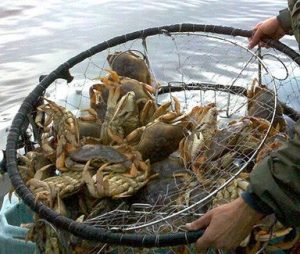 Some may wonder if the 2017 Dungeness crab season is ill-fated: First delayed by weeks to make certain crab were free of domoic acid toxin, delayed again after processors proposed lowering the price paid to crabbers, and then it started with a capsizing that could have cost five lives except for quick intervention by the Ballad. Today’s crabbers and fishermen have to be smart and rational to survive — literally and economically. Crab around the mouth of the Columbia this season never exceeded safe levels of marine toxin, but the industry is united in striving to preserve the reputation of Dungeness crab as a pure, premium product. For this reason alone, it’s sensible to take every precaution. Delays in the season also often have strategic components involving jockeying over price, and competition over crabbing grounds. Sometimes crabbers wait to allow an early-season storm to pass. In this instance, the closure went longer than most anyone wanted. Read the op-ed here 10:41
Some may wonder if the 2017 Dungeness crab season is ill-fated: First delayed by weeks to make certain crab were free of domoic acid toxin, delayed again after processors proposed lowering the price paid to crabbers, and then it started with a capsizing that could have cost five lives except for quick intervention by the Ballad. Today’s crabbers and fishermen have to be smart and rational to survive — literally and economically. Crab around the mouth of the Columbia this season never exceeded safe levels of marine toxin, but the industry is united in striving to preserve the reputation of Dungeness crab as a pure, premium product. For this reason alone, it’s sensible to take every precaution. Delays in the season also often have strategic components involving jockeying over price, and competition over crabbing grounds. Sometimes crabbers wait to allow an early-season storm to pass. In this instance, the closure went longer than most anyone wanted. Read the op-ed here 10:41
Six pilot studies test sea urchin farming in Canada
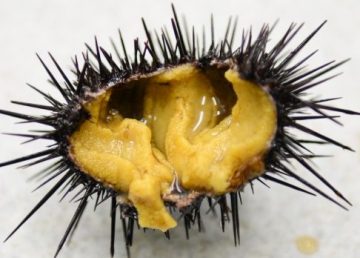 Federal scientists and others are exploring the possibility of sea urchin farming in Canada, with at least six pilot studies using Norwegian technology that proponents hope will turn “zombie” urchins which can denude kelp beds into profitable seafood. The first of the studies, conducted by Fisheries and Oceans Canada, is expected to start next week in waters off Vancouver Island, with others planned for Newfoundland, Quebec and Nova Scotia. Wild urchins are harvested in B.C. and elsewhere, but aren’t farmed commercially anywhere in Canada — yet. But the efforts to birth a new aquaculture industry are already running into questions about the ecological cost. Read the story here 09:11
Federal scientists and others are exploring the possibility of sea urchin farming in Canada, with at least six pilot studies using Norwegian technology that proponents hope will turn “zombie” urchins which can denude kelp beds into profitable seafood. The first of the studies, conducted by Fisheries and Oceans Canada, is expected to start next week in waters off Vancouver Island, with others planned for Newfoundland, Quebec and Nova Scotia. Wild urchins are harvested in B.C. and elsewhere, but aren’t farmed commercially anywhere in Canada — yet. But the efforts to birth a new aquaculture industry are already running into questions about the ecological cost. Read the story here 09:11
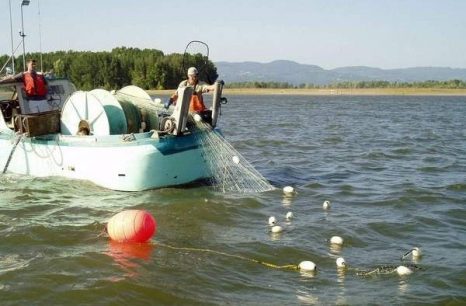
On Friday, the commercial fishery won the day – Gillnetters get continued access to main Columbia channel
By a tight 4-3 vote, the Oregon Department of Fish and Wildlife Commission veered away from an outright ban on gillnetting in the main channel of the lower Columbia River and set the state at odds with neighboring Washington on how to manage protected salmon and steelhead. The commission heard more than six hours of staff reports and strikingly discordant testimony from commercial gillnetters and recreational anglers, who have argued for years over who gets to catch how much of seasonal salmon runs, and what methods they may use. On Friday, the commercial fishery won the day, their case made by a parade of gritty Astoria gillnetters who spoke of generational ties, community businesses and family fortunes at risk if they were no longer able to make a living. Read the story here 08:06
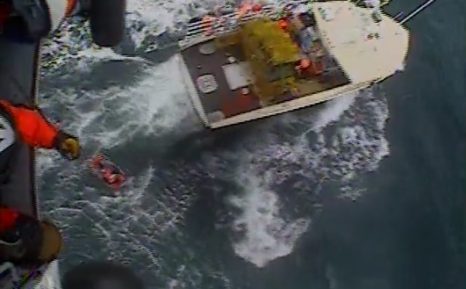
Video – Coast Guard aircrew hoists injured man from fishing boat 25 miles off Cape Ann
A helicopter crew from Coast Guard Air Station Cape Cod hoisted an injured fisherman Saturday from a fishing boat 25 miles southeast of Cape Ann. The captain of Golden Girl contacted Coast Guard Sector Boston watchstanders Saturday morning and reported a crewman aboard severely injured his hand and needed medical attention. The aircrew launched and arrived on scene at about 12:20 p.m. to medevac the man. After a successful hoist, the man was taken to Massachusetts General Hospital. Helicopter pilot Lt. Kyle Bertoluzzi said despite a low ceiling at takeoff, the skies cleared about halfway over Cape Cod Bay. He said the quick action of Golden’s Girl’s crew, flawless work by the flight mechanic, and teamwork by all helped this medevac go smoothly to get the injured man quickly into the care of doctors. Watch the video, click here 21:09
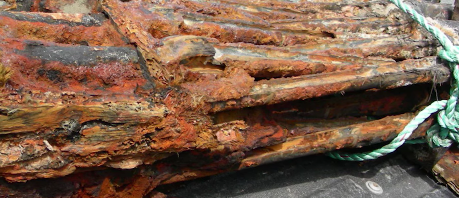
Fishermen Discover Crate Of 19th Century Rifles Off The Coast Of Canada
In 2011, fishermen working off Newfoundland’s Grand Banks pulled in a 600 pound catch. However, what they caught was not a fish. What they discovered was a heavily cemented and silt-filled crate of 20 Pattern 1853 Enfield muskets that date back as far as the 1850’s. The guns had been underwater at the bottom of the Atlantic Ocean for more than 150 years. The archaeology department at Memorial University in St. John’s Newfoundland has been working ever since to restore the relics that have been placed in a large container filled with a chemical solution that includes a bulking agent and corrosion inhibitor designed to stabilize them. After years of conservation work, things are looking good for the restoration process. The “3-band Enfield” got its name as it could get shots out to 500 yards if shot by a skilled marksman and the barrel was held to the wooden stock by three metal bands. Read the story here 16:26
Indicted: Bay seafood distributors charged for ‘fishy’ sales
 A federal grand jury has indicted the owners of a local seafood distribution company on charges involving the illegal sale of red drum and spotted sea trout to Louisiana businesses in 2014 and 2015. Lonnie M. Ray and Shelley H. Ray face the charges in U.S. District Court in Gulfport. The indictment, which was made public Thursday, shows both face charges of conspiracy to violate the Lacey Act, which makes it illegal to sell fish taken in violation of state laws and to cross state lines with those fish. Both face two counts each of Lacey Act violations. Lonnie Ray also faces a charge alleging he illegally possessed a short-barrel shotgun on June 17, 2015.Their trial is set on a court calendar that starts March 6. Read the rest here 15:47
A federal grand jury has indicted the owners of a local seafood distribution company on charges involving the illegal sale of red drum and spotted sea trout to Louisiana businesses in 2014 and 2015. Lonnie M. Ray and Shelley H. Ray face the charges in U.S. District Court in Gulfport. The indictment, which was made public Thursday, shows both face charges of conspiracy to violate the Lacey Act, which makes it illegal to sell fish taken in violation of state laws and to cross state lines with those fish. Both face two counts each of Lacey Act violations. Lonnie Ray also faces a charge alleging he illegally possessed a short-barrel shotgun on June 17, 2015.Their trial is set on a court calendar that starts March 6. Read the rest here 15:47
New website gives you the real deal on sea level rise and rates
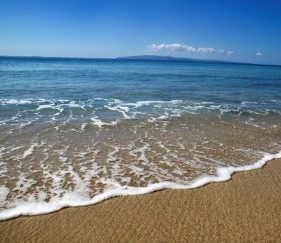 New analysis and graphing tools for sea-level data at SeaLevel.info which now has interactive regression analysis (line/curve fitting) and visualization (graphing) tools available for mean sea level (MSL) measurements from over 1200 tide gauges, plus spreadsheets which combine various subsets of that data. This article is intended as a primer, for how to use these new tools. But first, a few notes: Note #1: This is a work in progress. I already have a large “to-do list,” but suggestions & corrections are nevertheless very welcome. Note #2: These tools are my free contribution to the community. There’s no charge to use them. Note #3: These tools are ideologically neutral. Read the review here, and visit the website 12:49
New analysis and graphing tools for sea-level data at SeaLevel.info which now has interactive regression analysis (line/curve fitting) and visualization (graphing) tools available for mean sea level (MSL) measurements from over 1200 tide gauges, plus spreadsheets which combine various subsets of that data. This article is intended as a primer, for how to use these new tools. But first, a few notes: Note #1: This is a work in progress. I already have a large “to-do list,” but suggestions & corrections are nevertheless very welcome. Note #2: These tools are my free contribution to the community. There’s no charge to use them. Note #3: These tools are ideologically neutral. Read the review here, and visit the website 12:49
Using cod pots could be the way of the future for cod fishery
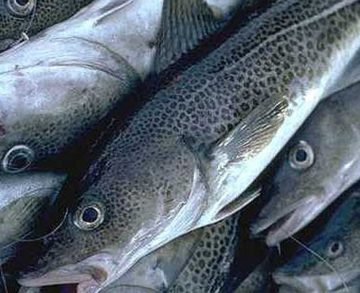 Phillip Meintzer thinks there might be a better way to fish for cod off the waters of Newfoundland and Labrador. The master’s graduate student in science from the Centre for Sustainable Aquatic Resources, Marine Institute of Memorial University, was guest speaker for the weekly Coastal Matters series at Grenfell Campus, Memorial University in Corner Brook Thursday. His presentation discussed promoting the conservation of Atlantic cod through the improvement and implementation of cod pots in the province. Here are five things to know about cod pots. Read the rest here 09:59
Phillip Meintzer thinks there might be a better way to fish for cod off the waters of Newfoundland and Labrador. The master’s graduate student in science from the Centre for Sustainable Aquatic Resources, Marine Institute of Memorial University, was guest speaker for the weekly Coastal Matters series at Grenfell Campus, Memorial University in Corner Brook Thursday. His presentation discussed promoting the conservation of Atlantic cod through the improvement and implementation of cod pots in the province. Here are five things to know about cod pots. Read the rest here 09:59
Gloucester Lobsterman fined $10K for illegal landings in plea deal – Apology to ‘entire fleet’ delivered in courtroom
 The Gloucester lobsterman accused of landing 183 illegal lobsters last November pleaded guilty to 20 of the counts, and was fined $10,000. All other charges against him were dismissed under a plea agreement announced Friday in Gloucester District Court. James A. Santapaola Jr., 40, of 16 Forest St., stood quietly before Judge Richard Mori, responding only with a “Yes, sir,” and “No, sir” when asked if he understood the impact of his guilty pleas and whether he had been coerced by anyone into making them. The pleas, fine and dismissals all came through joint recommendations negotiated by Santapaola’s lawyer, Liam O’Connell, assistant district attorney Aimee Conway, and Massachusetts Environmental Police, which had filed the charges at Capt. Joe & Sons Inc. on East Main Street last fall. While Santapaola did not speak, and left the courtroom without making any comment afterward, O’Connell read into the court record a letter in which his client said he was “humbled and humiliated” by the incident. Read the story and apology letter here 08:03
The Gloucester lobsterman accused of landing 183 illegal lobsters last November pleaded guilty to 20 of the counts, and was fined $10,000. All other charges against him were dismissed under a plea agreement announced Friday in Gloucester District Court. James A. Santapaola Jr., 40, of 16 Forest St., stood quietly before Judge Richard Mori, responding only with a “Yes, sir,” and “No, sir” when asked if he understood the impact of his guilty pleas and whether he had been coerced by anyone into making them. The pleas, fine and dismissals all came through joint recommendations negotiated by Santapaola’s lawyer, Liam O’Connell, assistant district attorney Aimee Conway, and Massachusetts Environmental Police, which had filed the charges at Capt. Joe & Sons Inc. on East Main Street last fall. While Santapaola did not speak, and left the courtroom without making any comment afterward, O’Connell read into the court record a letter in which his client said he was “humbled and humiliated” by the incident. Read the story and apology letter here 08:03
Oregon will defy joint fish management on the lower Columbia River
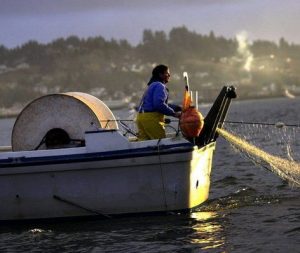 The Oregon Fish and Wildlife Commission ripped a hole Friday in the 99-year-old fabric of concurrent fish management on the Columbia River. With a split 4-3 vote, commission members defied the Washington Fish and Wildlife Commission’s attempt to negotiate the long-contested Columbia River Management Plan. The plan required a switch from gill-netting to selective commercial fishing on the mainstem below Bonneville Dam. It also gave priority allocation of mainstem salmon harvest to sport anglers. Friday’s vote, however, indefinitely extends gill-netting for fall chinook salmon from Sauvie Island to Bonneville Dam and for summer chinook in the entire lower river. Read the story here 07:28
The Oregon Fish and Wildlife Commission ripped a hole Friday in the 99-year-old fabric of concurrent fish management on the Columbia River. With a split 4-3 vote, commission members defied the Washington Fish and Wildlife Commission’s attempt to negotiate the long-contested Columbia River Management Plan. The plan required a switch from gill-netting to selective commercial fishing on the mainstem below Bonneville Dam. It also gave priority allocation of mainstem salmon harvest to sport anglers. Friday’s vote, however, indefinitely extends gill-netting for fall chinook salmon from Sauvie Island to Bonneville Dam and for summer chinook in the entire lower river. Read the story here 07:28
A day in the life of a New Bedford scallop boat captain
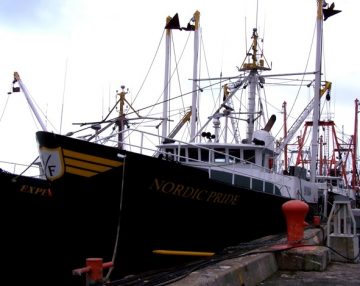 “We’re really pleased to see such a great turnout,” Fishing Heritage Center Director Laura Orleans told the standing-room-only crowd filling the center on Jan. 11. Pleased, but not surprised at the big turnout. “It’s no surprise because Chris Wright is one of my favorite captains,” Orleans said. By the end of the interesting lecture on his life at sea, and a spirited question-and-answer session, Wright was the favorite scallop boat captain of everyone in the room. “Don’t be in awe of us” braving fierce winds and mountainous waves far offshore, Wright suggested modestly at one point in the question-and-answer period. “It’s just what we do.” What Wright does is skipper the Huntress out of Fairhaven, and the Nordic Pride, based in New Bedford. A shared captain is not uncommon these days, with each scallop boat limited by fishing regulations to a maximum of 75 days at sea, he noted. “I’m getting ready for my 29th year as a captain,” Read the story here 16:32
“We’re really pleased to see such a great turnout,” Fishing Heritage Center Director Laura Orleans told the standing-room-only crowd filling the center on Jan. 11. Pleased, but not surprised at the big turnout. “It’s no surprise because Chris Wright is one of my favorite captains,” Orleans said. By the end of the interesting lecture on his life at sea, and a spirited question-and-answer session, Wright was the favorite scallop boat captain of everyone in the room. “Don’t be in awe of us” braving fierce winds and mountainous waves far offshore, Wright suggested modestly at one point in the question-and-answer period. “It’s just what we do.” What Wright does is skipper the Huntress out of Fairhaven, and the Nordic Pride, based in New Bedford. A shared captain is not uncommon these days, with each scallop boat limited by fishing regulations to a maximum of 75 days at sea, he noted. “I’m getting ready for my 29th year as a captain,” Read the story here 16:32
The Maine Lobster Marketing Collaborative Makes Its Mark In 2016
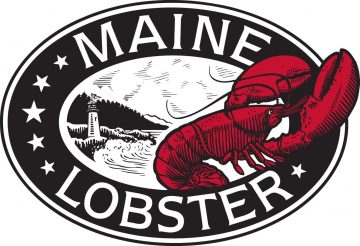 The Maine Lobster industry has much to celebrate after wrapping up a successful marketing campaign in 2016, which saw increased online engagement, media mentions and Maine Lobster menu mentions. Founded in 2013, with the aim to grow awareness for Maine Lobster, the Maine Lobster Marketing Collaborative (MLMC) strives to bring the story of the industry to chefs, media and consumers nationwide, and it is clear that the Collaborative’s efforts have been fruitful. Read the rest here 14:51
The Maine Lobster industry has much to celebrate after wrapping up a successful marketing campaign in 2016, which saw increased online engagement, media mentions and Maine Lobster menu mentions. Founded in 2013, with the aim to grow awareness for Maine Lobster, the Maine Lobster Marketing Collaborative (MLMC) strives to bring the story of the industry to chefs, media and consumers nationwide, and it is clear that the Collaborative’s efforts have been fruitful. Read the rest here 14:51
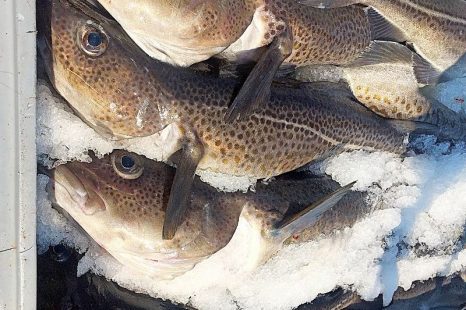
Letter: New year brings new hope for the fishery – Francis Patey, St. Anthony
As we move through January and discard the old calendar, we might ask ourselves what kind of year 2016 was for rural Newfoundland and Labrador. For me, personally, the top event of the year was remembering the 100th anniversary of the Royal Newfoundland Regiment and the Battle of the Somme, which my father was a part of. In 2016, the Liberals were back in power, dealing with a bag of financial problems left behind by the previous government, resulting in tough decisions being made to keep this Rock afloat. As in other years, rural Newfoundland and Labrador was again feeling the hatchet in the form of quota cuts to the shellfish industry, making fishermen wonder if it’s all worth it. Some may ask, with all the doom and gloom of 2016, was there not one single glimmer of light? Yes, there was. For the first time since the cod moratorium, the people in charge of running our fishery finally listened to the fishermen when they said the cod is back and back in abundance. Read the letter here 10:06
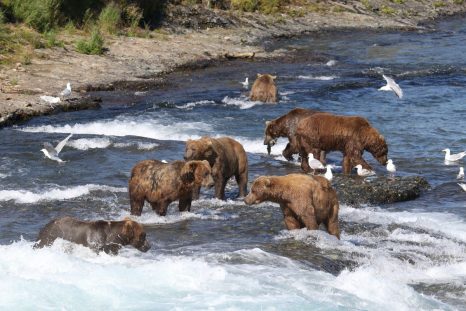
Bears vs. salmon: Solving the McNeil River puzzle
Although brown bears kill more than half the chum salmon entering the world-famous McNeil River each year, state fishery biologists and managers don’t believe the bears’ predation is the primary reason for the river’s stubbornly persistent weak salmon runs. Consequently, although the state Board of Fisheries recently designated the McNeil chum fishery a stock of concern, the board also decided against shooing away or killing some of the bears or helping the salmon avoid them — opting instead to allow the chum runs, over time, to recover on their own. McNeil River — named about a century ago for area rancher Charlie McNeil and bounded by McNeil River State Game Refuge and Katmai National Park — drains into the western portion of Kamishak Bay, approximately 100 miles west-southwest of Homer. The entire drainage lies within the McNeil River State Game Sanctuary, established in 1967, an exceptional bear-viewing area located near a cascading set of falls that has been drawing wildlife lovers since its creation. Read the story here 09:25
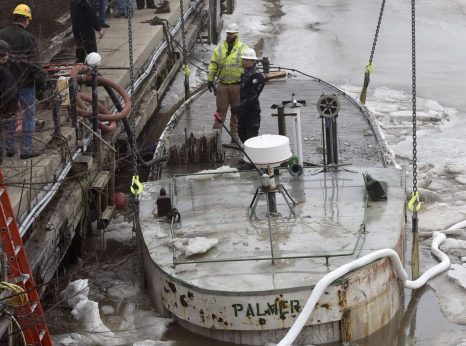
In photos: Historic Great Lakes fishing tug Palmer is removed from the Root River
The Palmer, a Great Lakes fishing tug, is removed from the Root River Thursday, Jan. 19, 2017, after the boat sank in late December near the State Street Bridge. The boat is a wood-hulled commercial fishing boat built by Sturgeon Bay Boat Works in 1926. According to the website Fishing Vessels of the Great Lakes, it was built for Alfred Shellswick of Waukegan, Ill., who fished with it until 1935. Click here to view 22 more photo’s 08:44
Haddock Boom! The number of haddock believed to have survived their first year off N.S. is “extraordinary,” says biologist
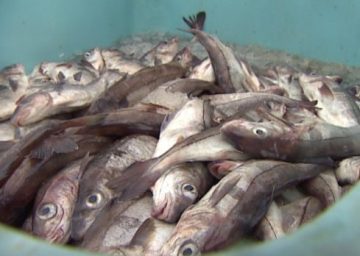 Exactly how many of the haddock that hatched in 2013 are still swimming off the coast of southern Nova Scotia is not certain, but researchers agree the numbers are potentially massive. Biologist Monica Finley recently completed a population assessment for the southern Scotian Shelf and Bay of Fundy. She estimates 264 million haddock were hatched there in 2013 and survived their first year, making it an “extraordinary” year-class. “This 2013 year-class is five times higher than the next highest on record since 1985,” said Finley, who works at a Department of Fisheries and Oceans research facility in St. Andrews, N.B. Her report predicts 100,000 metric tonnes of haddock will reach adulthood in 2017 and 2018. On Georges Bank, the population is predicted to be even bigger, with Canadian and American scientists estimating the 2013 hatch at 1.3 billion fish. Read the story here 18:36
Exactly how many of the haddock that hatched in 2013 are still swimming off the coast of southern Nova Scotia is not certain, but researchers agree the numbers are potentially massive. Biologist Monica Finley recently completed a population assessment for the southern Scotian Shelf and Bay of Fundy. She estimates 264 million haddock were hatched there in 2013 and survived their first year, making it an “extraordinary” year-class. “This 2013 year-class is five times higher than the next highest on record since 1985,” said Finley, who works at a Department of Fisheries and Oceans research facility in St. Andrews, N.B. Her report predicts 100,000 metric tonnes of haddock will reach adulthood in 2017 and 2018. On Georges Bank, the population is predicted to be even bigger, with Canadian and American scientists estimating the 2013 hatch at 1.3 billion fish. Read the story here 18:36
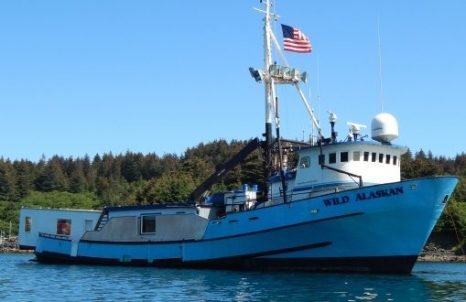
Sentencing reset for “Wild Alaskan” owner
A sentencing hearing has been rescheduled in the case of an Alaska man who was found guilty of illegally dumping human waste into a harbor while operating a crabbing boat that had been converted into a floating strip club. Darren Byler had been scheduled for a Thursday sentencing. But his attorney, John Cashion, says Byler’s flight from Kodiak Island was delayed and the sentencing is now set for 3:30 p.m. Friday. Federal prosecutors are recommending that Byler be sentenced to 18 months imprisonment. Prosecutors say Byler piped raw sewage from bathrooms aboard the 94-foot “Wild Alaskan” into the harbor near Kodiak in 2014 instead of taking it 3 miles offshore. The Bylers were accused of telling the Coast Guard they were properly disposing of the waste. click to read the rest 16:54
Sweden not giving up fight over lobster import ban
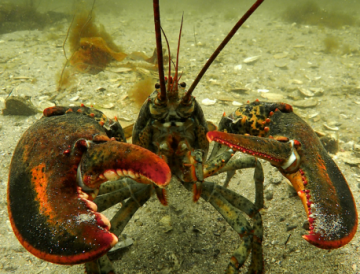 Sweden isn’t giving up on a long-running battle with the U.S. and Canada over lobsters that have turned up in Swedish waters. Officials with Sweden told The Associated Press that their country is working on a new proposal about how to deal with American lobsters that have turned up. A controversy about whether American lobsters are invasive in Swedish waters has simmered for almost a year. Sweden had wanted the European Union to consider a ban of imports of American lobsters. That call came after Sweden announced it had found 32 American lobsters in its waters. European Union officials turned away that request in October after American and Canadian scientists and politicians raised concerns about a lack of evidence that the lobsters warranted such a sweeping ban. But Swedish officials told the AP that the country remains concerned that American lobsters could interfere with European lobsters, which have economic value. Read the story here 15:09
Sweden isn’t giving up on a long-running battle with the U.S. and Canada over lobsters that have turned up in Swedish waters. Officials with Sweden told The Associated Press that their country is working on a new proposal about how to deal with American lobsters that have turned up. A controversy about whether American lobsters are invasive in Swedish waters has simmered for almost a year. Sweden had wanted the European Union to consider a ban of imports of American lobsters. That call came after Sweden announced it had found 32 American lobsters in its waters. European Union officials turned away that request in October after American and Canadian scientists and politicians raised concerns about a lack of evidence that the lobsters warranted such a sweeping ban. But Swedish officials told the AP that the country remains concerned that American lobsters could interfere with European lobsters, which have economic value. Read the story here 15:09
A ‘Confluence of events’ may have caused mysterious fish kill off Nova Scotia
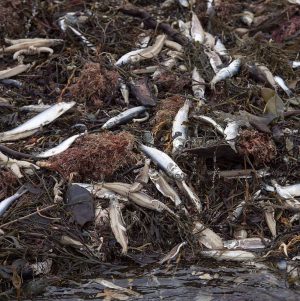 A federal scientist says the recent high-profile fish kill off southwestern Nova Scotia may have been caused by a “confluence of events,” including fish behaviour, weather, and various ecological factors such as predators. However, Alain Vezina says it’s still not known what caused thousands of herring and shellfish to wash ashore at several points between late November and through December. Vezina, who is regional director of science for the Department of Fisheries and Oceans (DFO), says causes such as pollution, pesticides, and naturally occurring toxins have been ruled out. He says overall the kill was a “small and localized event” that occurred over a 100 kilometre swath from St. Marys Bay to Tusket. Read more here 14:47
A federal scientist says the recent high-profile fish kill off southwestern Nova Scotia may have been caused by a “confluence of events,” including fish behaviour, weather, and various ecological factors such as predators. However, Alain Vezina says it’s still not known what caused thousands of herring and shellfish to wash ashore at several points between late November and through December. Vezina, who is regional director of science for the Department of Fisheries and Oceans (DFO), says causes such as pollution, pesticides, and naturally occurring toxins have been ruled out. He says overall the kill was a “small and localized event” that occurred over a 100 kilometre swath from St. Marys Bay to Tusket. Read more here 14:47
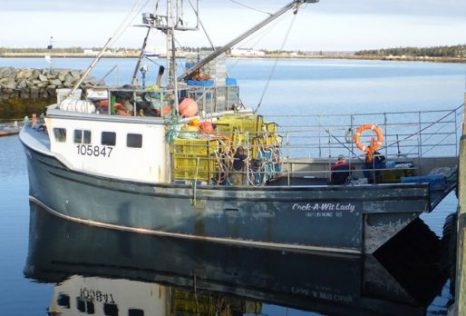
TSB Canada urges Fishermen to run safety drills in wake of tragic death investigation – New rules coming
The Transportation Safety Board of Canada says the crew on board a Nova Scotia fishing boat could have done more to prepare for potential emergencies, and that lack of planning may have played a role in the death of one of their own. Keith Stubbert, a 53-year-old man fisherman from Cape Breton, was dragged overboard from the Cock-a-Wit Lady and died during the first day of lobster season in southwestern Nova Scotia on Nov. 30, 2015. In a report released Thursday, the safety board said the crew of the ship hadn’t ever conducted safety drills and didn’t have a system for on-board risk management, such as meetings to identify safety risks. Transport Canada’s new fishing vessel safety regulations will come into force July 13, 2017. Under these rules small fishing boats will be required to have written safety procedures and familiarize all people on board with those procedures. The regulations also require safety drills be performed, including how to rescue someone who falls overboard. Records are to be kept of every drill, said the Transportation Safety Board. Read the story here 14:10







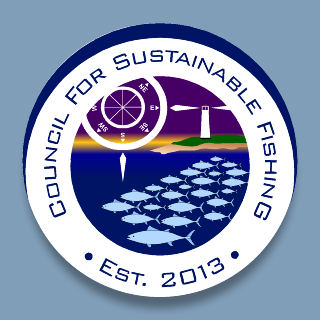
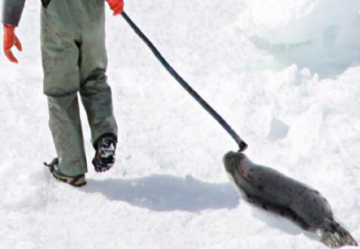
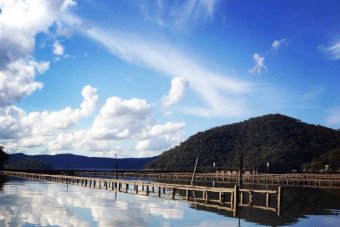
 Soon after he’s sworn in as the 45th President of the United States, Donald Trump will dine on Maine lobster, Gulf shrimp, and Seven Hills Angus beef, to name a few dishes. These foods are all on the menu for the inaugural luncheon, a long-standing tradition in which the Joint Congressional Committee on Inaugural Ceremonies hosts a meal for the president and vice president at the Capitol following the inaugural address. The committee organized its first luncheon in 1953, when lawmakers welcomed President Dwight Eisenhower for creamed chicken, baked ham and potato puffs in the Capitol’s Old Senate Chamber. Trump’s, which will be held in the Statuary Hall, will feature three courses. The first, Maine lobster and Gulf shrimp with saffron sauce and peanut crumble, will be accompanied by a J. Lohr 2013 Arroyo Vista Chardonnay.
Soon after he’s sworn in as the 45th President of the United States, Donald Trump will dine on Maine lobster, Gulf shrimp, and Seven Hills Angus beef, to name a few dishes. These foods are all on the menu for the inaugural luncheon, a long-standing tradition in which the Joint Congressional Committee on Inaugural Ceremonies hosts a meal for the president and vice president at the Capitol following the inaugural address. The committee organized its first luncheon in 1953, when lawmakers welcomed President Dwight Eisenhower for creamed chicken, baked ham and potato puffs in the Capitol’s Old Senate Chamber. Trump’s, which will be held in the Statuary Hall, will feature three courses. The first, Maine lobster and Gulf shrimp with saffron sauce and peanut crumble, will be accompanied by a J. Lohr 2013 Arroyo Vista Chardonnay. 


























